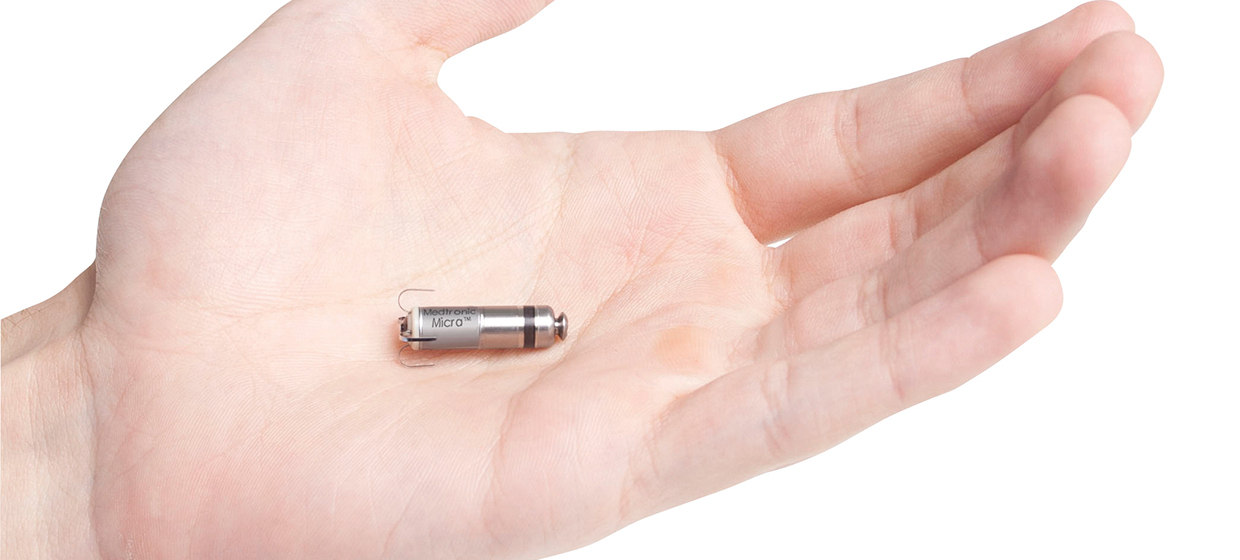
MemorialCare Saddleback Medical Center is one of the first hospitals in the region offering the world’s smallest pacemaker for patients with atrial fibrillation (irregular heartbeats) or who have bradycardia (heartbeats that are too slow). One-tenth the size of a traditional pacemaker, the Micra Transcatheter Pacing System (TPS) regulates beating of the heart through electric signals.
Atrial fibrillation occurs when the two upper chambers of the heart are not in sync and beat irregularly. Bradycardia is a condition in which the heart beats too slow, preventing the heart from pumping enough blood to the body during normal activity. Symptoms for both conditions include weakness, shortness of breath and fatigue.
“Millions of people are affected by atrial fibrillation every year,” says Paul Drury, MD, Saddleback Medical Center cardiologist. “You can sometimes treat the condition with medication, however in some cases, a pacemaker is needed and can now be inserted using a minimally invasive approach.”
The pacemaker is comparable in size to a large vitamin, and weighs less than a penny. It is small enough to be inserted through a hollow tube called a catheter with a small incision in the groin. Once inserted, the device starts working to get the heart back into a regular rhythm immediately. Procedure time is about one hour and most patients return home the same day with recovery lasting one to two weeks.
The device has a battery life of about 12 years. It was designed with a unique feature that enables it to be permanently turned off so it can remain in the body and a new device implanted without risk of electrical interaction for patients needing more than one pacemaker. Another advantage is that the pacemaker is wireless, meaning there are no leads or wires that send electrical impulses to the heart to keep it beating.
To learn more visit our section on Heart and Vascular Care.